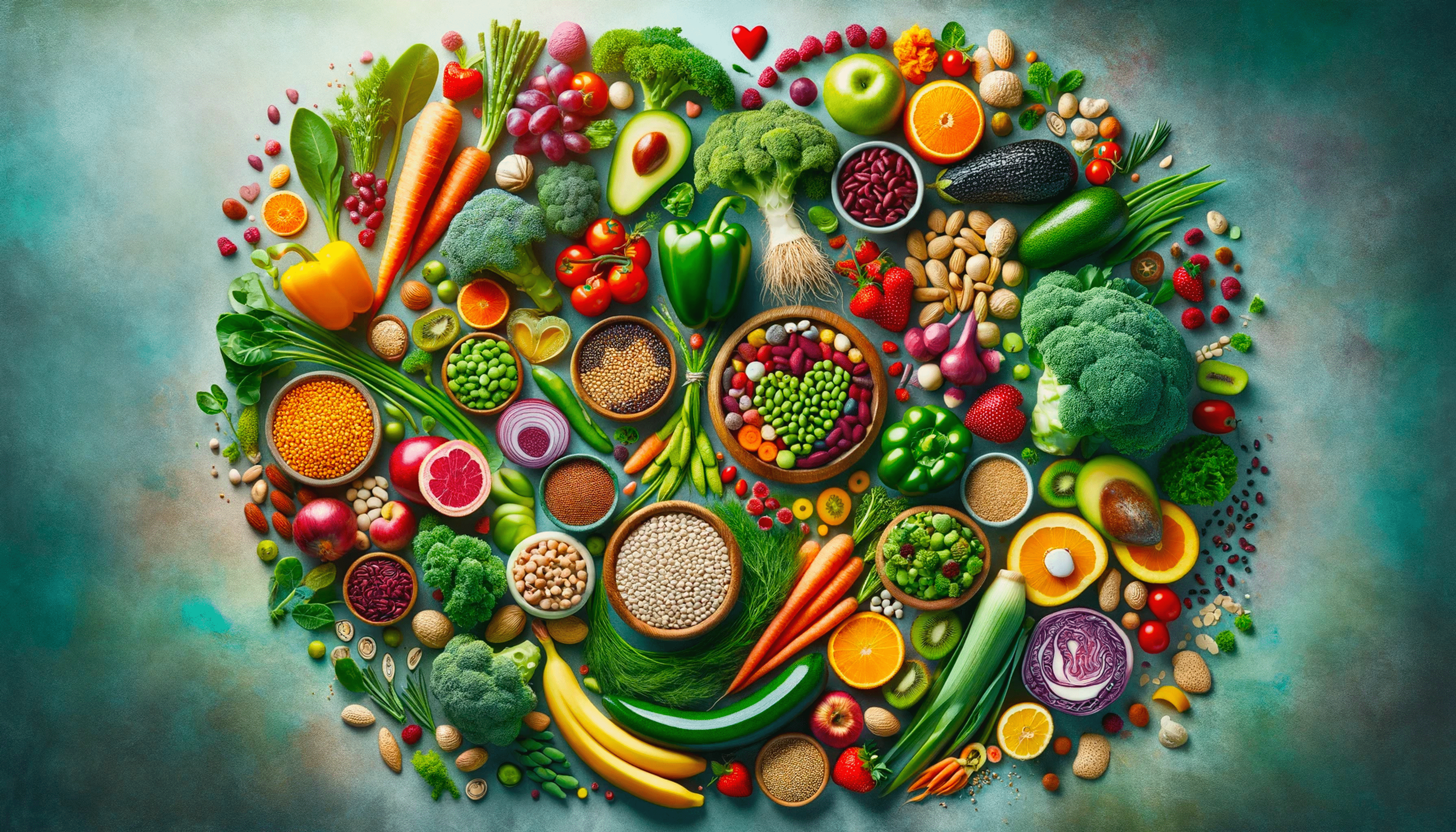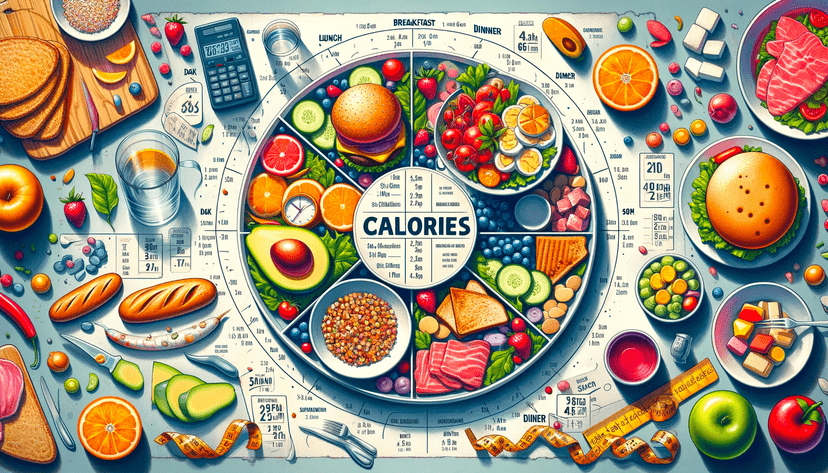What are the benefits of being a vegetarian?

Health Benefits of a Vegetarian Diet
Embarking on a vegetarian voyage may provide a myriad of health benefits fortuitously linked to a vegetarian diet. A well-planned vegetarian diet can provide adequate nutrition to meet your body needs while also contributing to your overall health significantly. Let's delve deep into the various health benefits that encompass reduced risk of chronic diseases, improved heart health, and better weight management.
Lower Risk of Chronic Diseases
The cornerstone of a vegetarian diet is nutritionally dense, consisting of a variety of fruits, vegetables, whole grains, nuts, and seeds. These food items are rich in fibre, antioxidants, and a plethora of essential vitamins and minerals, inherently contributing to a lowered risk of chronic diseases.
Vegetarians tend to have lower rates of certain diseases, such as hypertension, type 2 diabetes, and certain types of cancer, backed by research. For instance, a meta-analysis published in the journal JAMA Internal Medicine found that vegetarians had a 22% lower risk of colorectal cancer, and vegans saw a 16% reduced risk. Albeit these findings cannot establish causation, they indeed suggest a correlation that a vegetarian diet can play a significant role in chronic disease prevention.
Heart Health and Reduced Cholesterol
One of the most remarkable benefits of a vegetarian diet lies in its impact on our heart health. High cholesterol and blood pressure levels are known perpetrators behind heart diseases, and a vegetarian diet has been associated with lower cholesterol levels and reduced blood pressure—fundamental to improved heart health.
Numerous studies suggest that vegetarians have lower cholesterol levels due to the absence of dietary cholesterol, prevalent in animal-based foods. For example, a research paper published in the American Journal of Cardiology posited that a plant-based diet caused "significant and meaningful reductions" in participants' LDL, or "bad" cholesterol levels. Moreover, plant foods are rich in heart-healthy fibers and antioxidants, which are known to promote cardiovascular health by reducing blood cholesterol and protecting against oxidative damage.
Weight Management and Obesity Prevention
By naturally being low in saturated fat and cholesterol, yet high in dietary fiber, a vegetarian diet can be instrumental in maintaining a healthy body weight. Several studies note that vegetarians typically have lower body mass indexes (BMIs) and less body fat than non-vegetarians. The extensive consumption of fruits, vegetables, and whole grains—staples in a vegetarian diet—increases the feel of satiety, thus preventing overeating and naturally aiding in weight management.
For instance, a study published in the Journal of the Academy of Nutrition and Dietetics revealed a significant relationship between a vegetarian diet and lower BMI, irrespective of age and physical activity levels of the individuals. Therefore, while not a weight-loss diet per se, a vegetarian diet can contribute towards weight management and prevention of obesity over time—translating to a healthier life altogether.
In conclusion, switching toward a vegetarian dietary pattern can have profound impacts on our overall health and wellbeing. The key is to approach it well, ensuring a balanced and varied dietary intake to garner the extensive benefits of being vegetarian.
Environmental and Ethical Considerations
When considering the switch to a vegetarian diet, one cannot overlook its environmental and ethical implications. The current mainstream, meat-centric diet contributes heavily to environmental degradation and raises significant ethical questions around animal welfare. Let's explore this indication in more detail.
Reducing Your Carbon Footprint
A primary reason to consider vegetarianism is the potential to significantly reduce your carbon footprint. The United Nations' Food and Agriculture Organization reports that the meat industry contributes approximately 14.5% of all human-generated greenhouse gas emissions. That's a larger percentage than all forms of transportation combined!
How does meat production result in such a heavy carbon footprint? For example, consider the resources it takes to produce a single pound of beef. At the outset, large amounts of feed, which are often grown using synthetic fertilizers, are required to sustain cattle. This process emits significant amounts of methane, a potent greenhouse gas that traps 25 times more heat in the atmosphere than carbon dioxide.
Then, factor in the fossil fuel energy required for various processes such as farm machinery operation, transportation, refrigeration, and meat processing. Finally, consider the deforestation involved in creating more pasture land for the cattle.
Switching to a diet rich in plant-based foods leads to a drastically smaller carbon footprint. As a vegetarian, not only will your meals require less energy to produce, but you'll also promote more sustainable farming practices.
Conserving Water and Land Resources
Another profound environmental benefit from reducing or eliminating meat consumption is the conservation of water and land resources. Meat production consumes massive amounts of water. For example, producing 1 pound of beef can require up to 1,800 gallons of water when considering the water for the cattle's feed and drinking needs.
Similarly, animal farming demands extensive land use for pasture and growing feed crops. Deforestation for agriculture is one of the leading causes of climate change as it reduces the planet's capacity to absorb carbon dioxide.
On the other hand, the water and land requirements for growing plant foods are significantly lower. Hence choosing a vegetarian lifestyle helps towards preserving our planet's valuable resources.
Promoting Animal Welfare
Lastly, ethical considerations around animal welfare can play a significant role in the decision to become vegetarian. The meat industry frequently employs practices that prioritize efficiency over the well-being of the animals, leading to widespread suffering and poor living conditions.
It's essential to recognize that every individual's dietary choices form part of the demand driving these practices. By choosing vegetarianism, you are no longer supporting an industry that frequently disregards animals' well-being and instead promoting more humane and compassionate dietary practices.
In conclusion, the choice to become a vegetarian has benefits beyond your health. It can contribute significantly to reducing greenhouse gas emissions, conserving land and water, and promoting animal welfare. The switch might not always be easy, but knowing that each meal helps create a more sustainable and compassionate world can provide powerful motivation for the journey.
Mental and Emotional Well-being
Adopting a vegetarian lifestyle holds promise not only for physical health but also for one's mental and emotional well-being. Some might think, "A plant-based diet? That's for the body, not the mind!" but recent studies have suggested that being a vegetarian could enrich an individual’s overall emotional and psychological state.
The Psychological Benefits of Vegetarianism
Although the topic warrants further research, current scientific evidence indicates that those following a vegetarian diet report lower levels of depression, anxiety, and stress. A study published in the Nutrition Journal suggests that vegetarians might be happier than their meat-eating counterparts due to lower amounts of arachidonic acid, a substance found in animal sources, which could potentially modulate mood states via neurotransmitter systems. This potentially translates to a more positive and calm mental state, beneficial for boosting self-esteem and coping with life's hurdles.
Alignment with Personal and Ethical Values
Being vegetarian is not a mere decision about food intake—it often represents a person's core beliefs. Vegetarianism and veganism have a firm base in ethical, environmental, and health-focused beliefs. Choosing to become vegetarian could enhance feelings of self-worth, as the individual experiences alignment between their eating habits and their personal values. Making day-to-day decisions that are in tune with these deeply held values can instigate a profound sense of psychological well-being and self-fulfillment.
Community Support and Social Connection
An unexpected advantage that some vegetarians might notice is the sense of community and support they find within vegetarian circles. Joining a group of like-minded individuals, sharing recipes, discussing challenges, and collectively contributing to a cause can bring about feelings of camaraderie and belonging. These robust social connections can serve as a vital support system, particularly during initial diet transitions. In the realm of psychology, strong social support systems are known to significantly enhance mental health and overall life satisfaction.
To conclude, while the primary considerations for adopting a vegetarian lifestyle are often centered around health and ethics, the potential mental and emotional benefits should not be understated. From boosting mood and aligning personal values to gaining a sense of community, vegetarianism may offer a more wholistic approach to well-being, encouraging a healthier mind alongside a healthier body.
In Summary
Throughout this blog post, we inspected the various benefits of adopting a vegetarian diet. It's evident that a well-balanced vegetarian diet can significantly contribute to reducing the risk of chronic diseases, enhancing heart health, and promoting better weight management. This lifestyle choice can also have a profound impact on the environment by reducing your carbon footprint, conserving water and land resources, and promoting better animal welfare. Beyond physical health and environmental considerations, a vegetarian lifestyle could even contribute to one's mental and emotional well-being by engendering lower stress levels, fulfilling personal and ethical values, and fostering strong social connections.
To embark on this path towards a more sustainable and healthier future, consider following these action steps:
- Educate Yourself: Start by learning about the nuances of a vegetarian diet, important nutrients, and how to get them enough, from varied sources.
- Plan Your Diet: Make a meal plan that incorporates diverse plant-based foods to ensure nutritional adequacy. Consult a dietitian if necessary.
- Transition Slowly: Especially if you're consuming a high amount of meat currently, gradually decrease your intake while simultaneously increasing the amount of plant-based foods.
- Discover New Foods: Explore the abundance of delicious vegetarian-friendly foods available. Trying new recipes and vegetarian versions of your favorite dishes can make the transition easier and more enjoyable.
- Join a Community: Connect with other vegetarians or vegetarian groups for support, recipe sharing, and encouragement.
No journey is without its challenges, and transitioning to a vegetarian diet is no exception. However, armed with knowledge and determination, you might find this lifestyle change to be one of the most rewarding decisions you've made for your health, ethics, and the environment.
Remember, every small change makes a difference! Your choice contributes to a healthier you and a healthier planet, making it well worth the effort.





